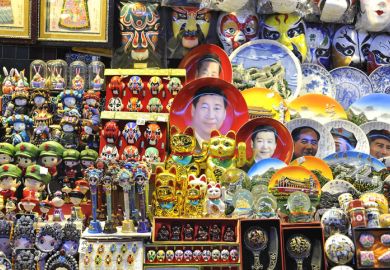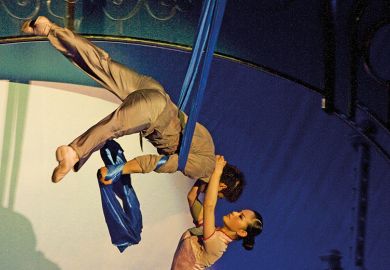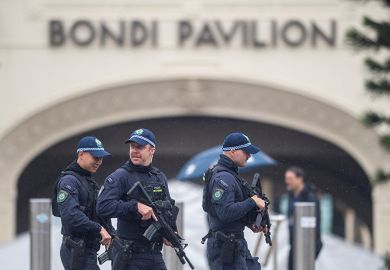The greatest challenges facing Chinese universities come not from overseas competition but from “the obstruction they encounter at home”, a leading scholar of the region warns.
Chinese institutions today must navigate “an ideological tightening not seen since the Cultural Revolution”, writes William Kirby, professor of China studies at Harvard University, in Empires of Ideas: Creating the Modern University from Germany to America to China, published this week.
The top-down pressure from Beijing to teach students a “comic book version of the history of their own nation” has resulted in a growing dissonance among learners – contrasting sharply with otherwise high-quality courses at China’s world-leading institutions, according to Professor Kirby.
“Despite excellent new programmes of general education, in the realm of politics and history the distance between what graduates have to learn in order to graduate, and what they know to be true, grows greater every year,” he says.
As a result, Chinese institutions “face the prospect of graduating two kinds of students: cynics and opportunists”.
Speaking with Times Higher Education, Professor Kirby noted that required courses on politics, communism and Chinese history have become “more intensified” since Xi Jinping came to power.
“It used to be that faculty would teach these courses with their own points of view or with a considerable degree of interpretation, but increasingly there’s been monitoring of every aspect of how these are taught,” he said.
The lessons run counter to universities’ mission to “develop habits that allow students to be independent of mind”.
“The extraordinary presidents who run Chinese universities know they need to educate the next generation of Chinese students to be innovative – they know that simple replication or repetition, in the realm of politics or anything else, is not education,” Professor Kirby said.
China is well on its way to becoming a world leader in research, particularly in the sciences, but must still improve on teaching quality, Professor Kirby continued. While in US liberal arts colleges and the universities of Oxford and Cambridge teaching is “taken so seriously”, Chinese institutions’ priority has instead “been to rise dramatically through the global rankings in research”.
“Rankings don’t measure inspiration, mentorship, how a professor changes the life of the undergraduates he or she teaches – and that will be a major challenge for China’s leading universities,” Professor Kirby said.
However, even in the absence of a democratic political system, Chinese universities would ultimately continue to thrive, Professor Kirby told THE.
“Chinese universities are remarkably durable. They have survived the late Qing period; the dictatorship of Yuan Shikai; the warlords; Chiang Kai-shek and the Nationalists; the Japanese invasion; and even Mao and the Cultural Revolution. They have survived and thrived despite the ups and downs of the [post-1978] reform era – and they will survive this era as well.”
POSTSCRIPT:
Print headline: China teaches ‘comic’ history
Register to continue
Why register?
- Registration is free and only takes a moment
- Once registered, you can read 3 articles a month
- Sign up for our newsletter
Subscribe
Or subscribe for unlimited access to:
- Unlimited access to news, views, insights & reviews
- Digital editions
- Digital access to THE’s university and college rankings analysis
Already registered or a current subscriber?








